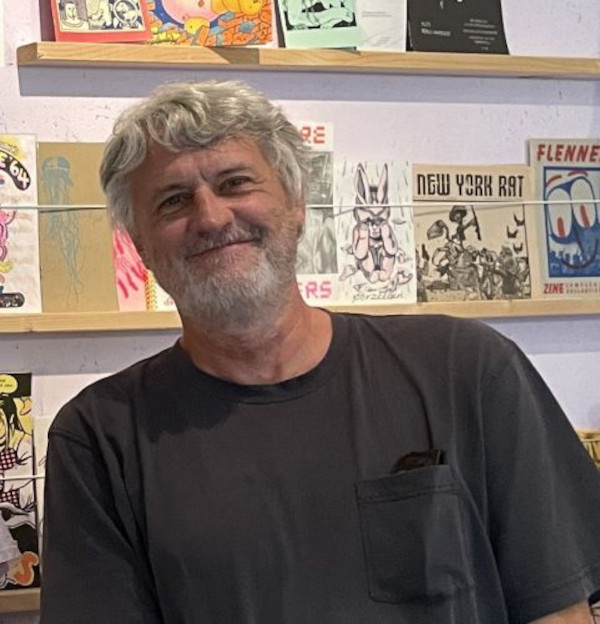
New episode dedicated to the discovery, through interviews, of centers, associations, institutions present in Europe and around the world, dedicated to the conservation, study, production and dissemination of fanzines. After the first interview with gianLuca Umiliacchi (here), founder of the Archivio Nazionale Fanzine Italiane – Fanzinoteca d’Italia 0.2 – Centro Nazionale Studi Fanzine, located in Forlì (FC), I now go to France to interview Andrew Hales, curator of the La Fanzinothèque de Poiters. As always I invite you to read, and then as soon as you can go in person to discover or rediscover this incredible and interesting archive of the world fanzinaro.
Here You can find the Italian Translation
How did the La Fanzinotèque come about?
La Fanzinothèque was founded in 1989 by Didier Bourgouin, who was asked by the city of Poitiers to create an event around youth press. He created La Fanzinothèque starting with his own collection of around 250 zines. We have almost 60,000 now.
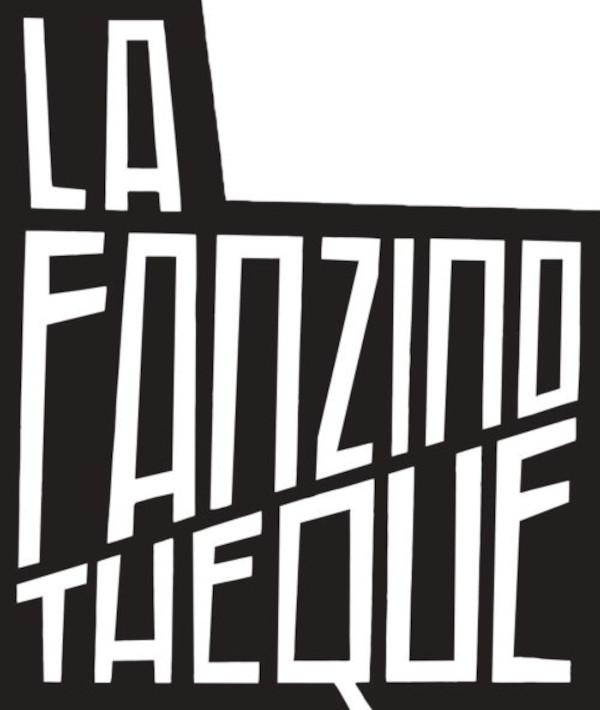
Where is it?
La Fanzinothèque is in Poitiers, France and is located at the Confort Moderne, a former industrial site that was converted into a cultural space in 1985. We share the site with two other non-profit associations: L’Oreille est Hardie, which mananges the site and programs contemporary art and music, and Jazz à Poitiers, which programs jazz and experimental and improvised music. There is also a restaurant and a record store.

What kind of fanzines do you have on file?
Our collection was founded on 80’s punk rock zines but has expanded to include everything: music zines, graphzines, comix, artzines, writing, feminist, queer, and eco-zines and so on.
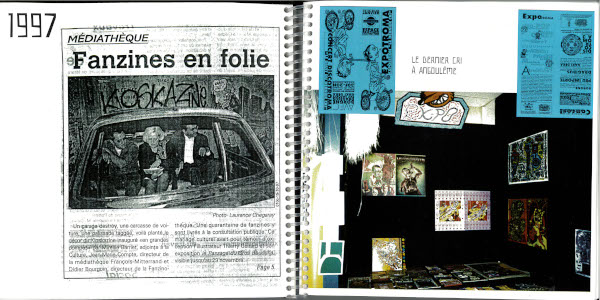
How the collection is stocked? Are you looking for new fanzines or are they sent directly to Fanzinotèque ?
The collection is arranged by country and alphabetically. All the zines are on accessible shelves and can be handled and browsed by anyone during opening hours. Members can borrow zines (up to 10 zines for one month). Almost all of our zines were donated to us. We don’t really have to look, people just send us stuff. We also collect many donations at zine festivals in France and elsewhere.

How can you enjoy La Fanzinotèque?
By coming to see us! We have a festival at the end of August so that is a particularly good time to visit. We have an online catalog (https://fanzinotheque.centredoc.fr/). We also have around 3000 zines which have been digitized and can be read online.
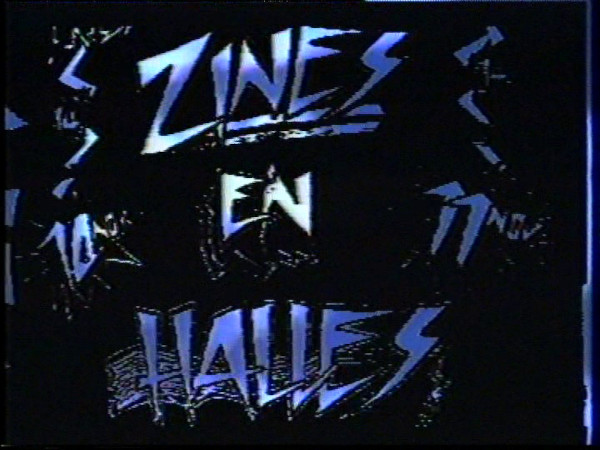
Do you have any interesting and funny anecdotes about the collection and about the “fanzinzinari” who got to know with La Fanzinotèque?
There are too many to remember!
Is Fanzinotèque in contact with other archives, museums dedicated to fanzines? For example, Archivio Nazionale Fanzine Italiane – Fanzinoteca d’Italia 0.2 – Centro Nazionale Studi Fanzine, or Fanzinorama la Petite Fanzinothèque Belge, or the Fanzinoteca del Museo Universitario del Chopo in Mexico?
Yes. Two years ago we started a network of zine libraries in France and Belgium which includes La Petite Fanzinothèque Belge and five others. We meet several times a year and publish a zine about our activities. We invited the Archivio Nazionale Fanzine Italiane to our 20th anniversary in 2009. And last year our archivist Marie participated in a video conference at the Fanzinoteca del Museo Universitario del Chopo.
Does it still make sense to talk about paper fanzines in an increasingly digitalized world? Do you plan to store fanzines in different formats other than paper?
Paper is not going away! More and more people are turning away from digital media and returning to print media, notably using risography. Also, many political zinesters view printed zines as a way to disseminate information outside of the total surveillance of digital space. We do have an ongoing project to digitize our collection, but it will take us 37 years to do so at our current rate…..
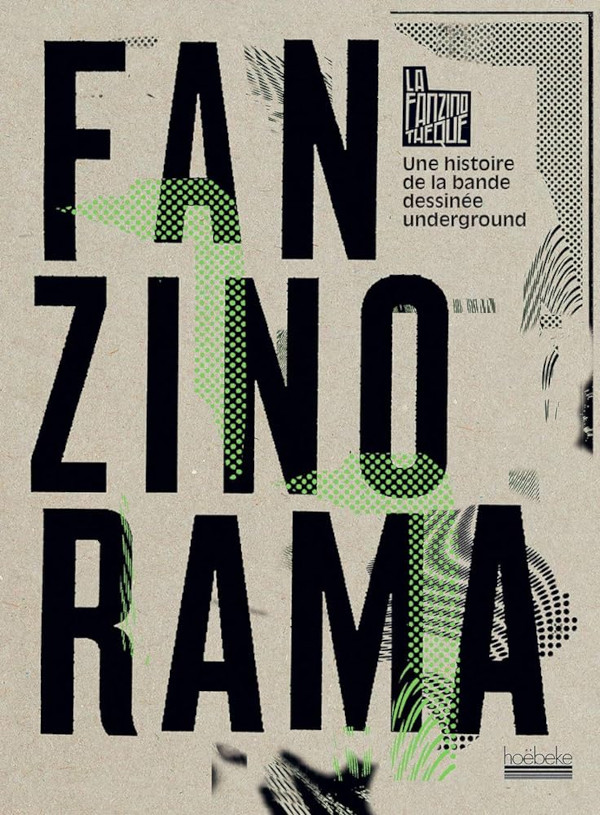
From your “privileged” point of view, how is the printed fanzine received in France? Which genres do you think have a greater impact on the society that enjoys the fanzine?
Zines are an important means of expression for a wide spectrum of marginalized people and subcultures, and as such I think they are equally important for all these groups in France and elsewhere.
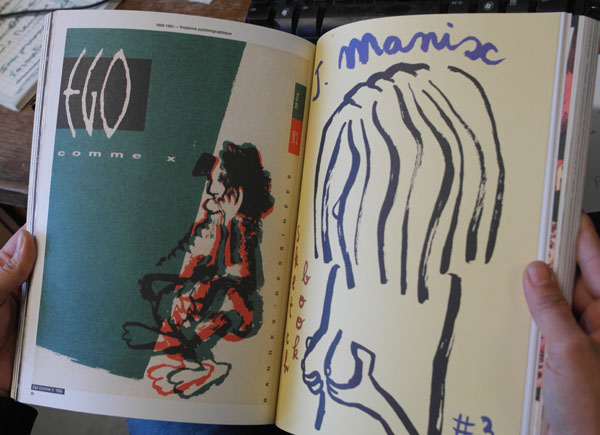
Is La Fanzinotèque on social media?
Yes. Facebook and Instagram. We also have a website.
Is La Fanzinotèque open to collaborations with associations, bodies, etc. etc.?
This year we initiated an exchange with some organizations in Germany (Bremer Zine Festival and the Archiv der Jugendkulturen in Berlin). We are always looking for new partnerships and connections. We also invite artists to make zines and screenprints in our workshop and to show their work in our exhibition space.

Inevitable final question: do you have any future projects such as a documentary telling the story of the Archive, or a book or anything else?
We made a documentary about us in 2009 for our 20th anniversary, and another documentary which presents La Fanzinothèque, “Fanzinat” was released last year. We published a pressbook retracing our history in 2019, and in that same year we published the book “Fanzinorama”, which is a visual history of zines featuring zines from our collection. As for future projects, we are looking forward to the 4th year of our festival UEF in August 2024.
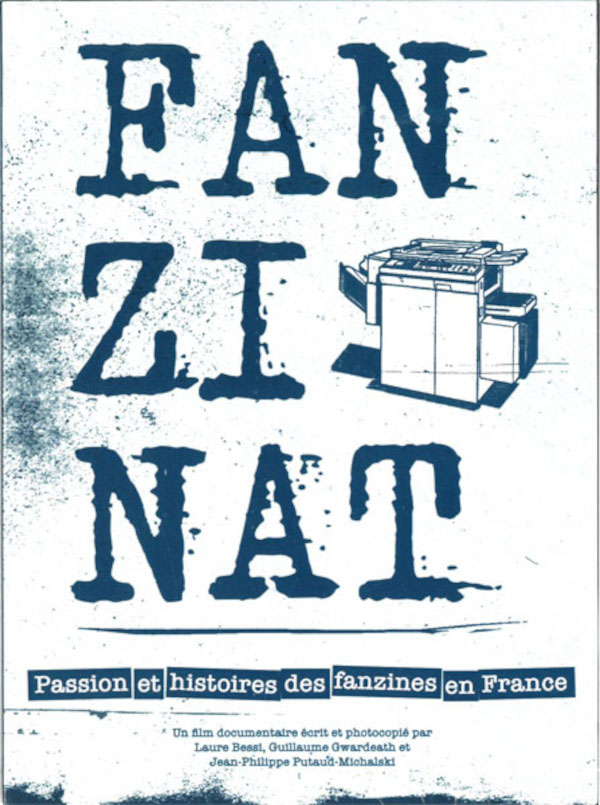
How have the volumes and documentaries been received by the audience that follows you?
The books have been well received and we have sold quite a few. The 2009 documentary was an in-house production that wasn’t distributed but people enjoy watching it at festivals etc.
“Fanzinat” has been widely shown at festivals and in cinemas all over France over the last year. It is not just about us but presents a general view of the zine scene in France.
Link: La Fanzinothèque de Poitiers Home Page
Link: La Fanzinothèque de Poitiers Facebook Page
Link: La Fanzinothèque de Poitiers Instagram Profile
